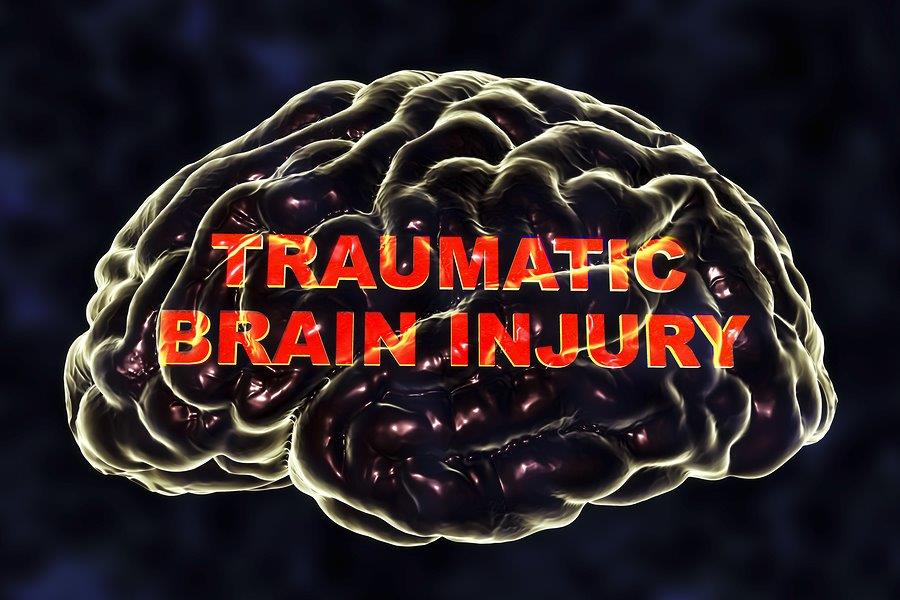 A traumatic brain injury (TBI) is caused by a sudden, violent blow to the head or body, and the damages that can stem from a TBI can be catastrophic resulting in not only serious injury, but disability, and even death. As personal injury lawyers, we commonly see these types of injuries in car accident cases, truck accidents, motorcycle accidents, slip and falls, bicycle and pedestrian accidents. Accidents involving falls account for the majority of TBI cases in the U.S., according to the Centers for Disease Control (CDC).
A traumatic brain injury (TBI) is caused by a sudden, violent blow to the head or body, and the damages that can stem from a TBI can be catastrophic resulting in not only serious injury, but disability, and even death. As personal injury lawyers, we commonly see these types of injuries in car accident cases, truck accidents, motorcycle accidents, slip and falls, bicycle and pedestrian accidents. Accidents involving falls account for the majority of TBI cases in the U.S., according to the Centers for Disease Control (CDC).
Any time your body or head receives a sudden blow or jolt, the brain collides with the inside of the skull. This collision can result in bruising of the brain, internal bleeding, penetration of brain tissue and tearing of nerve fibers in the brain. TBI symptoms vary depending on the location of the injury and extent of the damage.
Regardless of how the injury is sustained, a TBI needs immediate medical attention. While many symptoms appear immediately or within 24 hours of the injury, they may appear days or even weeks after the injury occurs. The effects of a TBI can be both physical and psychological, which makes it hard to diagnose at times, and many times, the symptoms are very subtle.
The initial physical symptoms include bruising and swelling to the head. The more swelling that occurs, the more pressure on the brain. As the brain swells, tissue can be damaged as it pushes against the skull. It also puts pressure on the blood vessels, thus reducing blood flow to brain cells, cutting off oxygen and other nutrients.
Internal bleeding can also result from a TBI. Symptoms that would indicate that a person is suffering from internal bleeding include bruising behind the ears, as well as bruising around the eyes. If someone has had a sudden jolt to the head and begins exhibiting bruising in these areas, it is important that he or she receives medical attention immediately.
Other common symptoms of a TBI include slurred speech, confusion, loss of coordination, restlessness, agitation, and vomiting. A TBI can also result in dilated pupils, and weakness or numbness in the arms, legs or feet. A persistent headache and feeling of fatigue or exhaustion is also commonly associated with a TBI, as well as persistent neck pain.
Sleep is discouraged if someone has suffered a head injury, but if the person falls asleep and is not easily woken up from that rest, this could be a sign of something serious. Additionally, if the person begins to lose consciousness or suffer from convulsions or seizures, medical attention needs to be sought immediately.
Cognitive and psychological side effects are common when suffering from a TBI, including agitation, changes in mood and memory problems. If the individual begins complaining about feeling lightheaded or dizzy or notices an increased sensitivity to sounds or bright lights, these could also be signs of a traumatic brain injury.
While one of these symptoms alone may not indicate a larger problem, if the person is dealing with one or more of them after sustaining a head injury, the injured person experiencing these symptoms should seek immediate medical attention. Every year, more than 50,000 people die from a traumatic brain injury. Given the statistics and just how deadly TBI injuries can be, these symptoms should not be ignored or taken lightly. For many victims of a traumatic brain injury, the aftermath of the injuries can mean long-term care and treatment. The following treatments can help in recovery: surgical procedures, medication, physical therapy and rehabilitation, psychological and emotional counseling.
Here is a list of trusted resources and support groups for brain injury survivors and their families and caregivers.
Central Florida Brain Injury Support Group
The Central Florida Brain Injury Support Group, formerly known as the Orlando Brain Injury Support Group, is a traumatic brain injury (TBI) group that meets monthly for socialization, education, exchange of resources, and support. The group’s mission is To Build Brain Injury Awareness Through Knowledge and Friendship. All brain injury survivors, family members, caregivers, and professional advocates are welcome. Meetings are held on the Third and Fourth Wednesdays of the Month at the Beardall Senior Center located at 800 Delaney Avenue in Orlando, Florida. Call (407) 246-4440 for more information or visit https://tbisupport.org/.
Tampa Bay Brain Injury Support Group
An inclusive group of brain injury survivors and caregivers that meet every month for social events around Tampa Bay. Meetings are held every other month at the Dunedin Mease Hospital (behind the gift shop). Their goal is to expand knowledge about brain injuries, provide more caregiver resources and have a place for people with brain injuries to feel welcomed. For more information call 727-204-2723 or visit https://www.facebook.com/TampaBayBrainInjurySupportGroup/.
Winter Haven Brain Injury Support Group
This group meets on the fourth Tuesday of each month from 7:00- 8:30 p.m. at the Winter Haven Outpatient Hospital, located at 3425 Lake Alfred Road, Winter Haven, Florida 33881. For more information call 863-292-4061.
Brain Injury Association of Florida, Inc.
Brain Injury Association of Florida assists individuals who have suffered debilitating brain injuries and is the only statewide non-profit organization devoted to doing so. They also help families who are having difficulty becoming caregivers and provide necessary resources and information. Call 850-410-0103 for more information.

Legally Written and Reviewed by a Managing Partner
Wooten, Kimbrough, Damaso, and Dennis, P.A.
Our content is written and reviewed by our founding attorneys Butch Wooten, Orman Kimbrough, Mike Damaso, and Tom Dennis. Helping the injured since 1966, they’ve successfully handled thousands of personal injury cases across Florida. Whether you’re a Florida resident or an out-of-state visitor injured in Florida, we’re dedicated to providing clear and reliable information to help you navigate your legal options confidently.




